The Faculty of Law is excited to welcome, and welcome back, all our law students--JD, graduate and transfer students--most especially the incoming 1Ls. We’d like to introduce some of the Class of 2022 to you. In our annual series of new first-year profiles, meet: Manula, Jackson, Elsie and Alina. (You can also meet four other incoming Class of 2022 students here).
Stories by Karen Gross
Manula Adhihetty
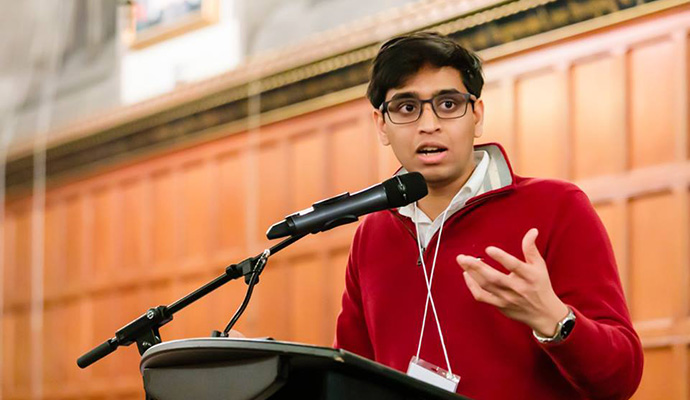
When Manula Adhihetty was a small child in Colombo, Sri Lanka, his family made a pilgrimage to India. “There were children who didn’t have much to eat. I gave them food,” he remembers. “But even then, I realized something was wrong. These were children who were my age. We might have played together.” Instead, they were hungry and Manula was feeding them. It’s a vignette that stayed with him, kindling an enduring sensitivity to disadvantage. His own experience, at age 13, as a newcomer to Canada, made that sensitivity even sharper.
“I am so glad we came here. We’ve been able to create a life that we’re happy with,” Manula says. “There were moments when I really felt like we were starting from scratch. But my parents taught my brothers and me that becoming virtuous individuals in a united and happy family was more important than achieving financial and academic success. I try to follow their advice always.”
Now 22, Manula played cricket through high school, as a member of the junior provincial and national teams. At U of T, he earned a BA in philosophy and will graduate with a master’s this fall. While studying and working as a teaching assistant, he took on several demanding volunteer roles, including as a youth mentor at the Canadian Centre for Victims of Torture and as a crisis helpline responder at the Toronto Distress Centres. “I’ve always been someone who would help out, get involved or talk things through when someone I knew was having a difficult time,” Manula says.
That is largely why he decided to abandon a plan to teach philosophy, and go to law school instead. “I’m very grateful for those volunteer experiences, because they showed me that I really want to do something practical to help people’s lives,” he says. “I think I can do that with the law. I want to work for an organization that’s either directly helping individuals or helping to create policies or change policies in ways that help people who are vulnerable.”
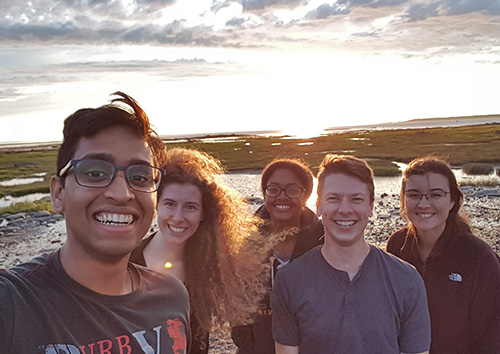
Which brings us back to his childhood, the family pilgrimage to India, and the essential question that still plagues him. “Why am I in a privileged position in life, and how can I make things more equal? The sacrifices my parents made make me want to do something about it, rather than just accept that that’s how things are. I want to make their sacrifices worthwhile.”
Jackson Spencer
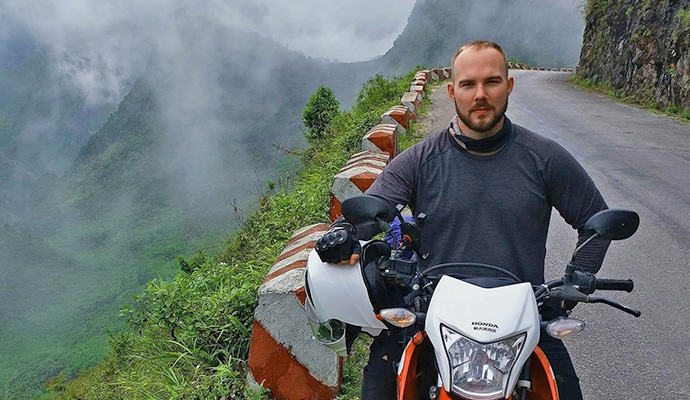
It’s a pretty good bet that Jackson Spencer will top at least one list in his class. He may, in fact, be the only person on it. As a world champion powerlifter, Spencer, 23, lays claim to being the mightiest among first years, maybe even the physically strongest U of T law student ever: the epitome of brawn and brain. “I’ve wanted to be a lawyer ever since I was in high school,” Spencer says. “When I was in university, I told myself I’d do the powerlifting thing for a bit, then I’d take some time off, and then go to law school.” Which is exactly what he did.
A native of North Vancouver, Spencer began powerlifting as an undergraduate at Carleton University. He joined the school’s competitive club, attended his first nationals a short time later, and won. “I really enjoyed the team,” he says. “The social aspect of it was really fun. Everybody gets together at these big national events and has a good time. I was also pretty good at it.” Which may be a bit of an understatement.
While working on his bachelor’s in law and legal studies, and repeatedly making the dean’s list, Spencer went on to compete in the world championships the following two years. He came in second both times but didn’t stop to savour his silver medals. Instead, after graduating, he pushed harder and showed up in Calgary feeling stronger in 2018. “I won by a long shot, so it was a kind of redemption. I also set a world record for total weight for my age and weight category.” Spencer had lifted a combined total of 890 kilograms. He decided that was enough. “I was ready to move on to different things.”
Those things include Brazilian jiu jitsu, and a wanderlust instilled by his parents, who took the family to live in Abu Dhabi when Spencer was young. “You’ll never know how much that affects you in life but that was a very good place to spend my formative years,” he says. Recently, he and his father completed a two-week trek to Everest Base Camp, after which Spencer backpacked solo around Southeast Asia for another couple of months.
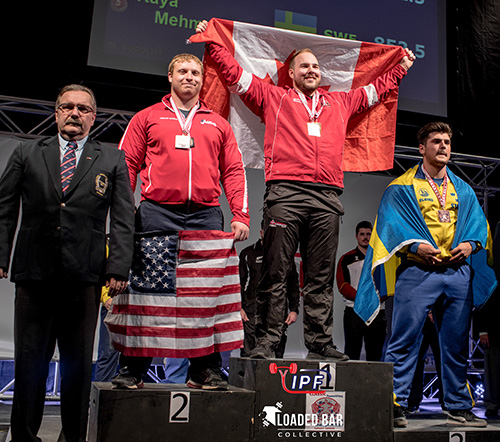
He won’t need a passport for his next trek, but life experience has equipped him well for the adventures ahead. “Just being able to set goals and accomplish them,” Spencer says. “I set the goal of winning and I did everything in my power to accomplish that. I think that’s very transferable to being a successful law student and eventually, a successful lawyer.”
Elsie Tellier
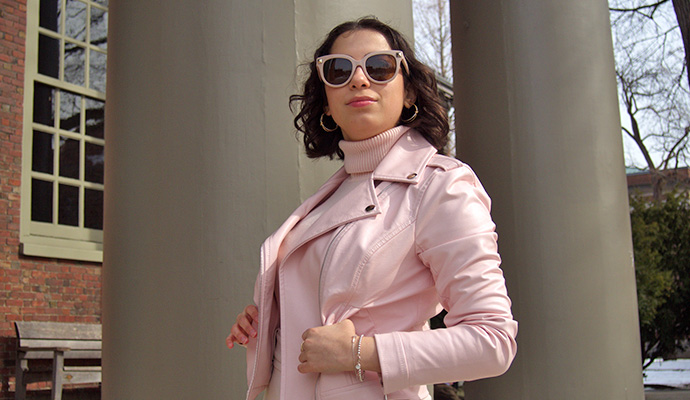
A life-threatening diagnosis would knock plenty of people down. Elsie Tellier, who got hers at age 12, aimed for the stars instead. “I was pretty single-minded,” says the Harvard graduate who learned she had cystic fibrosis after years of battling debilitating, misidentified illness. “My life expectancy is better than what I thought it would be when I was 12. But on that first day, when I was told most people with CF don’t live past 30, I decided I needed a goal.”
To hear Tellier speak is to feel like you’re awash in bubbling champagne. Her words tumble out so quickly, her voice is so light, it’s plain she has no time to waste and no patience for nonsense. Her mother died at her birth. She and her sister were raised by their father and their aunt, a physician who moved to Winnipeg from Mexico to help care for them. Growing up, she’d miss long stretches of school due to sickness, but she flourished nonetheless. “When you’re sick I’d say you’re out of sync all the time. I dedicated myself to doing my school work and being home with my family,” she says. A supportive community and modern technology helped. “Our school had one iPad from the library and my teachers would Skype me into class. My classmates would literally pass me down the hallway, transferring the iPad from class to class.”
At Harvard, Tellier resurrected and rebranded the school’s Disability Alliance after she learned, firsthand, that the vaunted university’s accommodations were severely lacking, and in some cases, illegally so. “Every other disabled student I found had a similarly bad experience. People were suing,” she says. “My first week, I ended up speaking to the dean of the college. I went straight to the top.” Her leadership was so consequential, Tellier was recognized with a Harvard Foundation Award last year. She’s a force on social media as well. Her posts, tweets and snaps address everything from faith in the LGBTQ community, to traveling while disabled, to how to make a fashion statement with a wheelchair.

“My two main interests are child protection and disability rights,” says Tellier, who addressed both in her undergraduate thesis, which studied Manitoban foster parents and their experiences fostering Indigenous children with Fetal Alcohol Spectrum Disorder. “I’ve always seen law as a really helpful way of being an activist. I want to sink my teeth more directly into the issues I care about.”
Exactly how she’ll do it, Tellier isn’t sure. But her track record proves she’s pretty good with goals. “If I can just work on specific cases and help even a few people, that’s enough for me.”
Alina Valachi
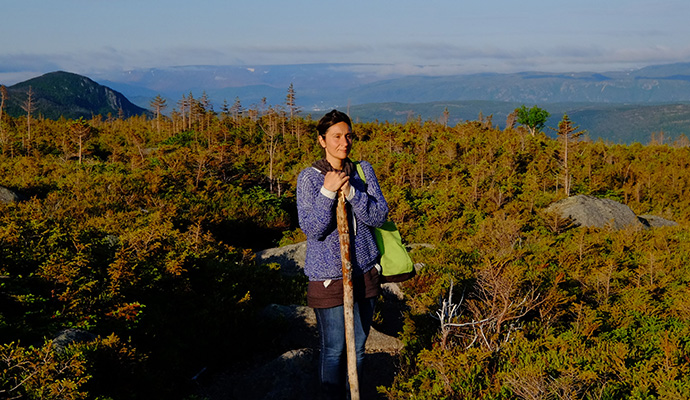
For Alina Valachi the second time was the charm. Valachi, 37, had applied to the Faculty of Law once before, drawn by its specialized joint JD/MSW program. And although she wasn’t admitted, she was determined to try again. “I truly pursued this joint degree because of the opportunities it offers to collaborate,” she says, referring, in her case, to the field of domestic violence, and the disconnect she observed in the professions involved. “I wanted to do a law degree to be able to bridge that gap.”
The roots of Valachi’s passion are deep and personal. She spent her childhood in Romania, ruled by a dictatorship that criminalized birth control and abortion. Both her mother and grandmother went to dangerous lengths to terminate unwanted pregnancies; her grandmother jumped off a roof. “They performed self-induced abortions. They didn’t feel safe visiting a doctor,” she says.
When she was 12, the family immigrated to Canada, settling in Montreal. But resettlement was difficult and both her parents began experiencing mental health challenges. By the time she enrolled in an electrical engineering program at McGill, Valachi’s father had become emotionally and physically violent with her and her mother. She found solace and support in her job at the university chaplaincy service, and in extracurricular volunteer positions. “I guess as I was experiencing these challenges in my personal life, community work and the opportunity it offered me to build healthy relationships and create space for me to feel valued and respected, that became a lifeline for me,” she says.
Valachi completed her engineering degree but never pursued the profession. Instead, she moved to Ontario and began working in the social services field, first with the John Howard Society and then the Coalition for Persons with Disabilities. She earned a bachelor’s in social work and went to work at the Rexdale Women’s Centre helping victims and perpetrators of domestic violence. “I realized many of the victims were newcomers and didn’t have the legal knowledge they needed to safely exit the violent situations they were in,” she says. “As a social worker, I felt like I didn’t have the ability to support them with their legal issues.”
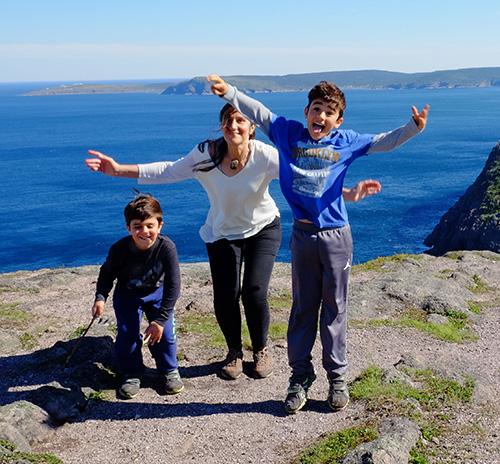
After volunteering at Toronto’s Barbara Schlifer Clinic for abused women, Valachi decided she liked its collaborative model, but she wanted to improve on it. The JD/MSW is her path. “I have a dream of taking it further,” she says. “I want to help agencies build collaborative approaches to ending domestic violence. I would love to see doctors and lawyers and social workers coming together in a close network to help members of this disadvantaged community.”








